Mozambique: President of the Republic meets with Venâncio Mondlane to strengthen political ...
Mozambique Elections: Bar Association slams announcement of results without investigation of irregularities
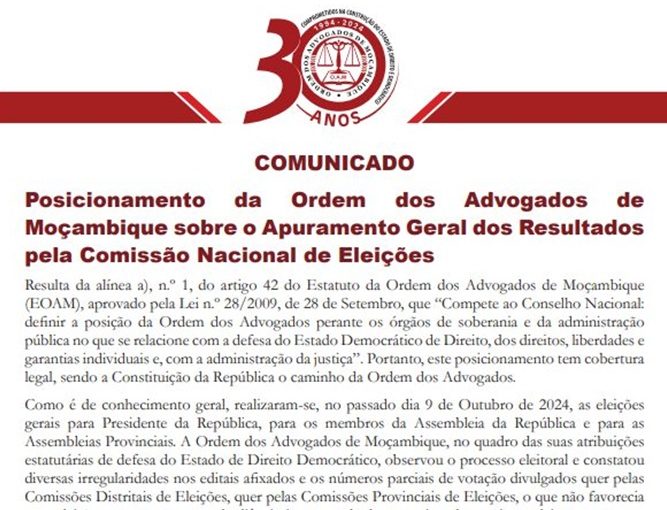
Image via Ordem dos Advogados de Moçambique (cropped)
The Mozambican Bar Association (OAM) yesterday criticised the National Elections Commission (CNE) for having announced the results of the general elections of October 9, despite irregularities pointed out by the CNE itself.
The OAM considers that the CNE opted for a “wild rush forward” when deciding to announce the election results, despite recognizing that it did not have “objective conditions” to investigate discrepancies in the number of voters between the different elections, and despite the high abstention rate in all electoral districts and the high rate of blank and invalid votes.
For the OAM, the CNE’s claim that it did not have “objective conditions” to investigate cannot be true, since “it is [the CNE’s] responsibility to investigate and guarantee the fairness and transparency of the electoral process, and its [the CNE’s] decisions are binding and therefore subject to appeal to the Constitutional Council”, according to the four-page statement issued by the body representing Mozambican lawyers.
When the results were announced, the CNE claimed that the legal deadline of 15 days had to be met, but the OAM argues that the law allows for an extension of that period “if it is necessary to carry out essential steps to remedy and/or resolve the substance of the matter (irregularities), as is the case here”.
“It is therefore very serious that a public entity with such great responsibility, in this case the National Electoral Commission, chooses to ignore serious, fundamental and decisive problems, such as those related to the verification of the will expressed by the people – through voting, by resorting to an alleged inflexibility of legal deadlines, leaving such an important matter to be clarified and corrected, when there are serious defects that the body itself recognizes (discrepancy in numbers),” the Mozambican Bar Association statement stresses.
The Mozambican Bar Association points out that, “the deadline for the release of results cannot (…) justify concealing the electoral truth”.
In other words, the CNE had no legal obligation to release results that are not credible because, “no interest should prevail other than the electoral truth”.
As a result, “all this lack of transparency of the electoral management bodies” sparked protests and demonstrations “that were repressed in a profoundly violent manner by the police”.
The OAM states that the protests began even before the results were announced and also without the Constitutional Council having validated them, because the two institutions “do not enjoy any credibility within Mozambican society, which is very serious in a democracy, when people do not believe in their republican institutions”.
“We cannot allow a bloodbath in our society and the signs point in that direction. If we allow it, we will be failing as a state, as a democracy, as a people, just to accommodate unknown interests,” the OAM warns.
The Mozambican Bar Association therefore believes that the only thing left for the Constitutional Council to do is “return the Minute of National Centralization and General Tabulation of Results to the CNE, instructing it to investigate and clarify, within a certain time period, the underlying problems that it itself acknowledges exist, in particular the discrepancy in the numbers”.
After the CNE issues its investigation report into these discrepancies, the Constitutional Council must begin the process of analysing and discussing the entire process in a public session, in the presence of at least the representatives of the presidential candidates and the political parties, as well as the press and the national and international electoral observers.
The Constitutional Council must also “order the publication of all notices [editais]” from the polling stations and, if this is not possible, order “a recount of the votes nationwide and the posting of the respective editais”.
“Otherwise, they must assume responsibility for the social instability resulting from this electoral process. The responsibility of the Constitutional Council has never been as heavy as it is today,” concludes the statement signed by the chairman of the Mozambican Bar Association, Carlos Martins.
Mozambique held general elections on 9 October for the President of the Republic, members of the Assembly of the Republic and for the provincial assemblies and governors.
The CNE announced on Thursday the victory of Daniel Chapo, supported by the Front for the Liberation of Mozambique (Frelimo, the party in power since 1975) in the election for President of the Republic, with 70.67% of the votes.
Venâncio Mondlane, supported by the Optimist Party for the Development of Mozambique (Podemos, an extra-parliamentary party), came in second place, with 20.32%, but said he did not recognise these results, which still have to be validated and proclaimed by the Constitutional Council.
Frelimo also strengthened its parliamentary majority, increasing from 184 to 195 deputies (out of 250), and elected all 10 provincial governors in the country.
The announcement of the results by the CNE once again triggered violent protests and clashes with the police in Mozambique, especially in Maputo, by pro-Venâncio Mondlane demonstrators.
The Centre for Public Integrity (CIP), a Mozambican non-governmental organization that monitors electoral processes, estimates that ten people died, dozens were injured and around 500 were arrested as part of the protests.
- You may read the full statement of the Mozambican Bar Association, in Portuguese, HERE.


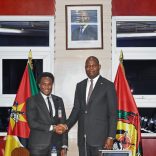
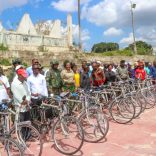
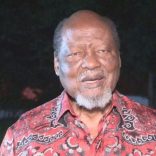
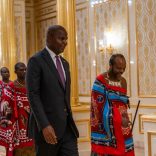







Leave a Reply
Be the First to Comment!
You must be logged in to post a comment.
You must be logged in to post a comment.